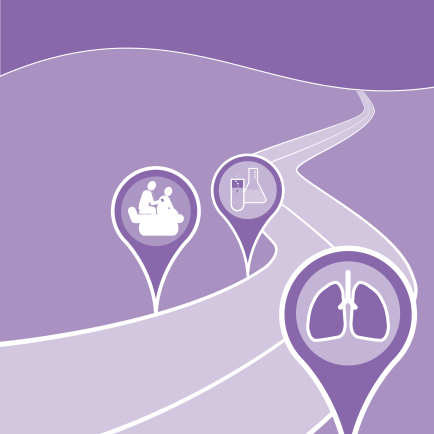Trust and Trustworthiness in Clinical Care and Research

Trust and Trustworthiness in the Patient-Physician Relationship
The healthcare system was foreign to me until I entered into my 30s. I had periodic visits for checkups and minor indications, always with an eagerness to keep the visits as short as possible. The encounters were not memorable, perhaps appropriately so. I believed that while doctors knew about disease, I knew better about health and wellness. Things have changed over the past 10 years. I am no longer that mostly healthy person with an incidental illness, and the healthcare system has become something other than a foreign landscape.
At the heart of the patient-physician relationship are the art of diagnosis and the art of healing, even in the absence of cure. And at the core of clinical decision-making should be the values and preferences of patients as well as the best supportive evidence from clinical research. When deciding on or evaluating a treatment, the physician and the patient ought to pose the same question: how will the treatment benefit, or is it benefiting, this particular individual? Clinical medicine is an artful application of clinical research. The difficult charge to the physician is to speak to the patient about the science as it pertains to “similar” patients.
- Has the treatment been studied systematically in patients similar to me with a similar indication for intervening?
- If so, how compelling is the evidence that I am more likely to be helped than harmed?
- If I am more likely to be helped than harmed, to what degree will I be helped?
Healthcare is the care of the patient, and it must by definition be patient-centered. To me, meaningful measures of the healthcare system are the degree to which it promotes trust of the patient in the care and trustworthiness by those involved in the caring.
Evidence-Based Medicine
The premise of evidence-based medicine is that medical practice should be based on empirical evidence from patient studies. The physician must have a substantial degree of confidence that the treatment does benefit most members of some defined patient population. This is the notion of efficacy.
In clinical science, researchers test efficacy using a randomized controlled trial (RCT). RCTs assign participants to two or more groups, with one receiving a placebo or no treatment (the control group), and then compare the results. If the treatment proves useful under these controlled conditions, its effectiveness can be tested in patients in real-world practice settings.
Clinical trials are currently expensive, delayed in both initiation and conduct, and challenged by enrollment. Frequently they do not include a broad array of patients who fully represent important population groups. The results are, therefore, slow to develop and not always applicable in a timely manner to healthcare settings, leaving patients and physicians faced with unanswered practical questions. A core problem is that many drugs tested in RCTs are unlikely to result in a dramatic clinical change in a short timeframe. As a result, RCTs must enroll a sizable enough population to stand a chance of detecting changes over a relatively brief period. They often rely on markers that are thought to be associated with clinical improvements but not actual outcomes (e.g., reducing cholesterol instead of preventing death). But these surrogate outcomes may not be a measure of true benefit.
Opportunities exist to create RCTs that test clinically meaningful outcomes in highly defined patient populations. If efficacy cannot be demonstrated in the trial group, the treatment can be abandoned or tested in another highly defined population. If a clinically meaningful difference is detected, then one can look at groups of patients in a real-life practice setting and ask if any of these groups do worse, as well as, or better than the group that benefited in a significant way in the efficacy RCT. Then from all different types of patients who might benefit from a treatment, one can stratify patients based on age, gender, extent of illness, comorbidities, etc., and understand the different causes and effects of treatment in these subgroups, and thus improve care at the level of the individual patient.
Another approach is to conduct pragmatic trials on large populations in real-life practice settings that effectively provide gold standards across a wider range of patient characteristics, and that restrict outcome measures to ones that are both statistically and clinically significant.
Supporting and Promoting Trustworthy Patient-Physician Driven Clinical Research
The mission of the ILD Collaborative is grounded in the core value that patient-physician collaborative care and research are the foundations for improving patients’ clinical care outcomes and quality of life. We take a deeply empathetic approach to innovation that begins with understanding the diverse needs of all involved. We understand that engagement is promoted by prioritizing issues that matter most to ILD Collaborative network stakeholders — ILD patients, their physicians, and caregivers. We aim to adopt and advance technologies that help people work together in a more collaborative manner. Our goal is to build a robust data infrastructure for patient-physician driven clinical research to collaborate on studies of disease mechanism, natural history, epidemiology, comparative effectiveness of licensed therapies, post-approval surveillance, and the advancement of informatics methods.
Humanistic Clinical Research
My journey as a patient has been anchored in deeply meaningful moments that opened my eyes to the altruism of the profession of medicine as a human pursuit. My experience speaks to the fact that humane and empathetic physicians, committed to understanding the patient’s narrative of illness, would like nothing better than to do what is right for and by their patients. They alongside their patients should champion clinical research.